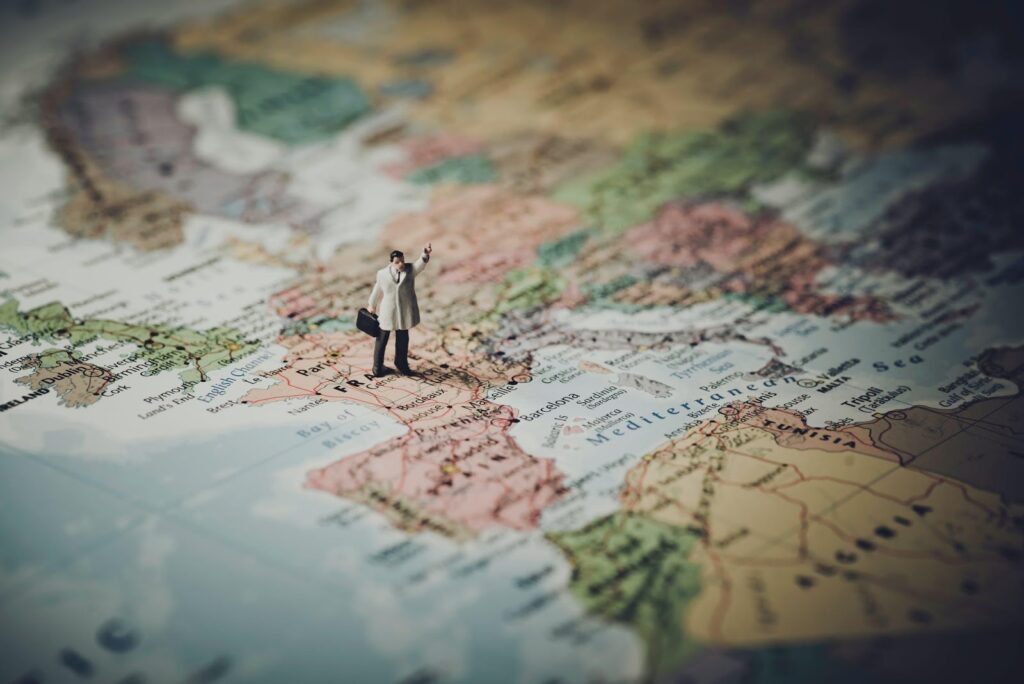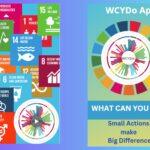As winter comes to an end and leaves behind its debris and jumpers, we welcome in Spring, a time for a new beginning as new shoots rise from the ground and residents of the UK could finally experience more freedom. With this newfound freedom, I believe we will become increasingly aware of how industry, culture, and interests have changed since Covid. One particular industry I’m thinking of is the tourism, as according to 2019 data, tourism generated 7 percent of global trade, so it’s a big subject, which suffered a big hit. With flights being cancelled and countries being forced into their houses, eager jet-setters and the countries they visited all went into hibernation. This major hit being a decrease in 56 percent of international tourism and $320 billion in exports lost in the first five months of 2020. The aviation industry alone supported almost 37 million jobs within tourism, making up roughly $897 billion a year to global GDP. As of this month, the UK Government has tightened their restrictions on oversea holidays as they are now banned under a new legislation that has come into force – so I think it’s safe to assume 2021 will be a ‘staycation’ for a lot of us here in the UK. However, when we consider the world as a whole and the United Nations’ 17 Global Goals, my mind wonders whether the pause of tourism was a good thing, or whether it was detrimental to the sustainable life span of the planet.

The pause in tourism a step backward for the Sustainable Goals Project?
Think about the last time when you went on holiday (if you have been fortunate enough to experience one)…now think about the food that you ate, the places you stayed in, the money you spent, the vehicles that transported you, everything you learned, and all the paid people that made it possible…yep, well, that’s what’s at stake. So let’s break it down.
Money is power.
Some countries heavily depend on tourism to bring in more revenue, for some, it can represent over 20 percent of their overall GDP. In the case of the Pacific Island of Palau, tourism alone generates 90 percent of all of its exports. Largely tourism is responsible for the third-largest export sector of the global economy. When we consider the phrase ‘money is power,’ where does this leave countries like Palau? When it’s money that Westerners are spending, does that perpetuate the power of 1st World Countries? Now realising how unstable and unreliable tourism can be, is it really that sustainable in the long-run?
An often forgotten aspect of tourism is its effect on education and equal opportunities. Tourism isn’t age or gender biased (for the most part), so a high share of less favoured groups such as women and young people are involved / employed. Even something as simple as this hits so many of the Global Goals including gender Equality (G5), Decent work and economic growth (G8), Reduced Inequalities (G10) and arguably less poverty (G1). When we go back to the old phrase of “money is power”, these job opportunities of a more diverse group can offer empowerment for many groups and helps to support economic growth in rural areas. It’s not just the jobs they benefit from but workers in the tourism industry benefit from vocational training and education giving out qualifications, standards, and certifications…and that covers our Quality Education goal (G4).

When you think about a holiday you’ve been on. Did you learn anything? Did you experience things that widened your mind, even slightly? Did you not only soak up some sun (if it was sunny), but also a sense of local culture and comparison? Well, this is also at stake. For me, this lack of broadening and opportunity for new perspectives can be detrimental to our understanding of the wider world, and ultimately ourselves. This even refers to the workers within the tourism industry, evidence has shown that this education and money has often “transformed the value that communities and societies ascribe to their cultural and natural heritage”. As well as community development, it serves to ground and promote a culture that improves intercultural dialogue and acknowledgment between countries. “These private and public partnerships engage multiple stakeholders – international, national, regional, and local multicultural and inter-faith tolerance and understanding”. I would say this targets Peace, Justice, and Strong Institutions (G16) and potentially Partnerships between governments (G17).
Is being a tourist like going to a party and leaving the house trashed?
However (and this is a big “however”), there are certainly many issues around the sustainability of the world when we consider tourism, so let’s balance this out. Let’s get one thing straight, Global Tourism is closely linked to climate change. When it comes to tourism, it’s not shy of emitting every form of pollution possible! We’re talking air emissions, noise, solid waste, and littering, releases of sewage, oil, and chemicals, even architectural/visual pollution, soil erosion, discharges into the sea, natural habitat loss increased strain on endangered species and heightened vulnerability to forest fires. It often puts major pressure on water resources, and it can “force local populations to compete for the use of critical resources”. Where’s the water going? Other than for hotels, swimming pools, and personal use of water by tourists, one major water resource is Golf Courses, and there’s certainly enough of them. The maintenance can deplete freshwater resources through excessive extraction of water, wells, and over-pumping can cause saline intrusion into groundwater. Quite often these resorts and located close to protected areas and places where the resources are limited.

What a waste!
Just to give you flavour of the waste that’s produced, the cruise ships to the Caribbean are estimated to produce “more than 70,000 tons of waste each year“. Forests also suffer negative impacts of tourism through wood collection for fuel and land clearing. For example, “one trekking tourist in Nepal – an area already suffering the effects of deforestation – can use four to five kilograms of wood a day (UNEP, 1999)”. Not even trying to dissect the amount of waste used in the over-consumption of food, purchases, and the one-time use of clothing!
One of the biggest contributors to climate change is air travel. One study estimated that “a single transatlantic return flight emits almost half the CO2 emissions produced by all other sources (lighting, heating, car use, etc.) consumed by an average person per year (ICAO, 2001)”. Let that soak in for a second. In one return flight, you use HALF of the emissions created by other sources all year! Is it worth it?
Are you an Eco-Tourist? (Let’s coin the noun)
So that’s a summary of the predicament we’re in. Tourism has good advantages for people and power, but when it comes to the planet’s long-term survival, it’s a no-brainer.
If you’ve been a faithful reader of my blogs in the past, you’ll know I’m an optimist when it comes to the much-needed pause that lockdown and Covid have granted us in regards to the Sustainable Development Goals. If we’ve learned anything it’s how our “blissful lives” have major impacts on natural resources and ecosystems. This gifts us the opportunity to rebuild and transform the tourism industry through observing societies, and ”managing it better; to ensure a fair distribution of its benefits and to advance the transition towards a carbon-neutral and resilient tourism economy”. This can be through directing more attention to destinations that can be visited and benefit from investments such as agro-tourism – a “sprouting” segment that grows the income of local areas and leads to a more hardy form of agriculture. This way we can boost communities to become more resilient, and businesses within these areas through partnerships, education, sustainability, diversification, digitalisation, and innovation. We will require the backing of economic recovery packages that can focus their investments in a greener economy such as “energy smart buildings, and the circular economy”. When it comes down to your choices, choose your holidays mindfully, soak up the culture, be as eco-friendly as possible. Some people love holidays because it’s the only time they allow themselves to relax and look around. It would also be worth ensuring you carve out time in your day to day life to breathe in, appreciate the present moment and view life itself as a fun excursion.
Sending you a bunch of positivity.
Best
Eliza
IG: @elizapitkin
April 2021
References:
https://www.tandfonline.com/doi/abs/10.1080/13683500.2011.555180?journalCode=rcit20
https://www.unwto.org/tourism-in-2030-agenda
https://om.ciheam.org/om/pdf/a57/04001977.pdf
https://www.un.org/sites/un2.un.org/files/sg_policy_brief_covid-19_tourism_august_2020.pdf
https://www.telegraph.co.uk/travel/news/travel-news-lockdown-easing-flights-holidays-summer-break-passports/
Do you agree? Tell us what you think – email: tellus@whatcanyoudo.earth or via our “Social Media Channels” (Top Right of our landing page)
“tellus” is a Latin word meaning “Earth” e.g. Tellus Mater the ancient Roman Earth Mother Goddess







